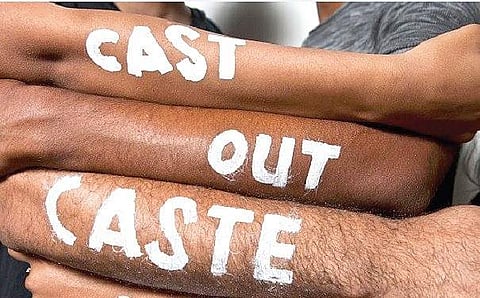

CHENNAI: A survey carried out by the Tamil Nadu Untouchability Eradication Front (TNUEF) shows that caste discrimination is still very much prevalent in schools across the state. The exercise, which was carried out in 441 schools, showed that Dalit students were made to clean toilets in 15 schools, apart from various types of discrimination being practised while serving noon meals in schools.The survey was held in the backdrop of the incident in Nanguneri where a Dalit student and his sister were brutally attacked by the boy’s classmates who are from the dominant caste.
As part of the survey, 250 trained volunteers spoke to 664 students (448 students from the SC community, 68 SCA students, 46 MBC, 41 BC, 19 ST students and 1 upper caste) in classes 6 to 12 in 321 government schools, 58 government-aided schools and 62 private schools. About 70% of the students surveyed were from families that don’t own lands and 30% didn’t have own houses. Of the 50% that own houses, families live in huts or tiled roof houses. Because the respondents were children, the survey took place in the form of conversations.
Highlighting discrimination during noon meals and bias by the school management, the survey states that six schools had separate lines for Dalit students when the food was served, while in four schools Dalit students said they were made to eat in separate rooms; and 19 schools had separate tumblers for drinking water.
More than 35 types of caste discrimination that students were subjected to were identified by the volunteers. While students wearing caste symbols became a topic of debate after the Nanguneri incident, it was found to be prevalent in more than 35 schools across the state. There was also discrimination in using the playground at 12 schools.
In 25 schools, caste fights between students were reported to the school management. The volunteers also identified three schools where girls have been sexually harassed and five schools where the girls said that they felt unsafe while using the bathrooms.
Giving recommendations to the government to ensure social justice in schools, the report recommended the school education department to form a separate wing headed by an IAS officer to ensure social justice and equality in schools.
The Tamil Nadu Untouchability Eradication Front also urged that a counselling centre should be formed in each block and it should visit the schools and promote dialogue between students and teachers. These centres should also provide counselling to students, teachers and parents to ensure that there is no caste and gender-based discrimination in schools.
Other suggestions include the implementation of the Manavar Manasu scheme effectively, ensuring that details of caste certificates are kept only in education offices and removing details of caste from students’ registers in schools.
Meanwhile, officials from the school education department said that the government has already formed a one-man committee headed by retired judge K Chandru to suggest measures to address caste discrimination in schools and the schools have been asked to cooperate by providing necessary details to the committee. “Once the committee submits the report, we will act according to the government’s direction to solve the issue,” they added.